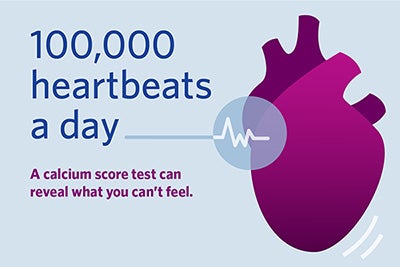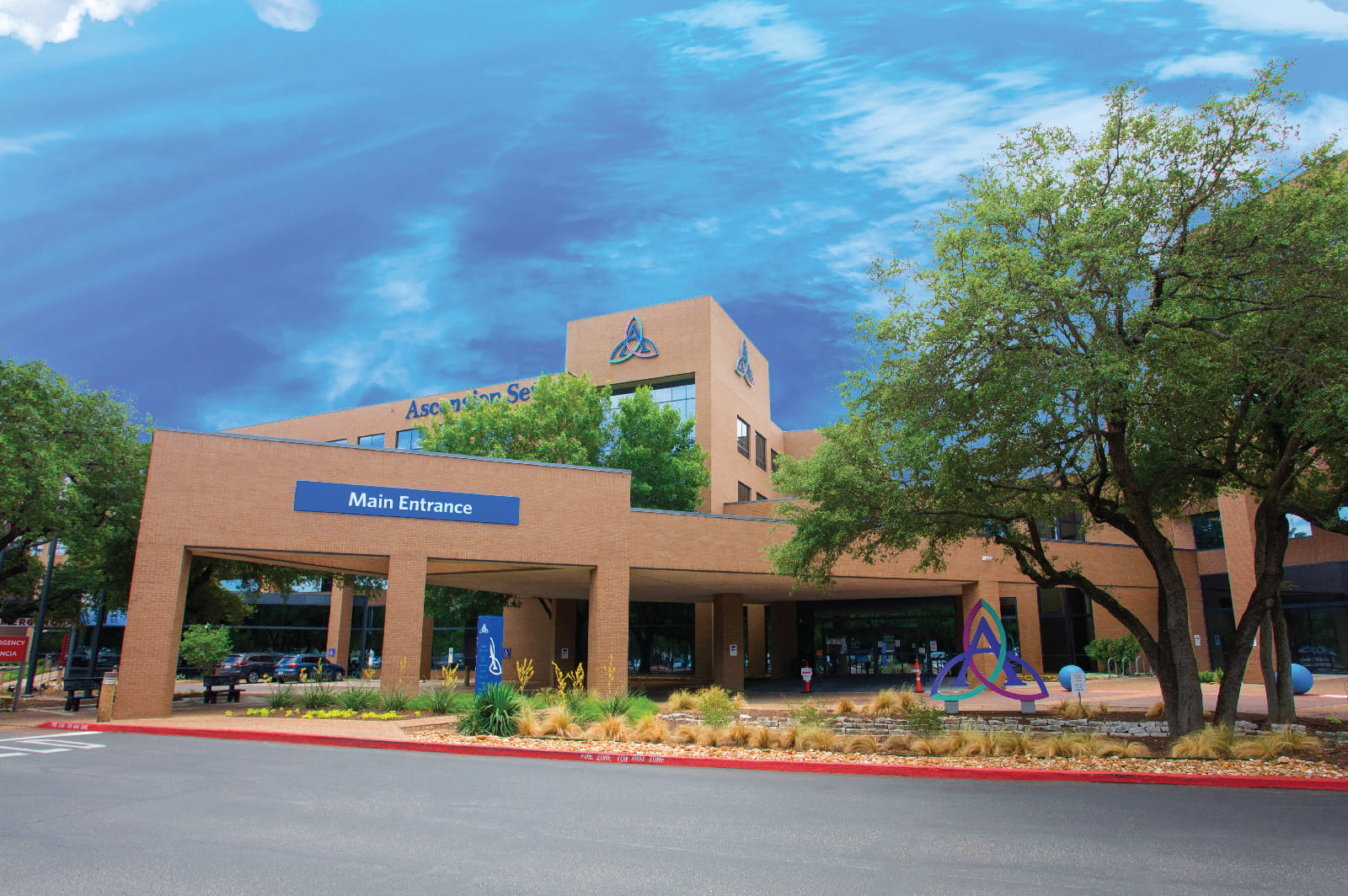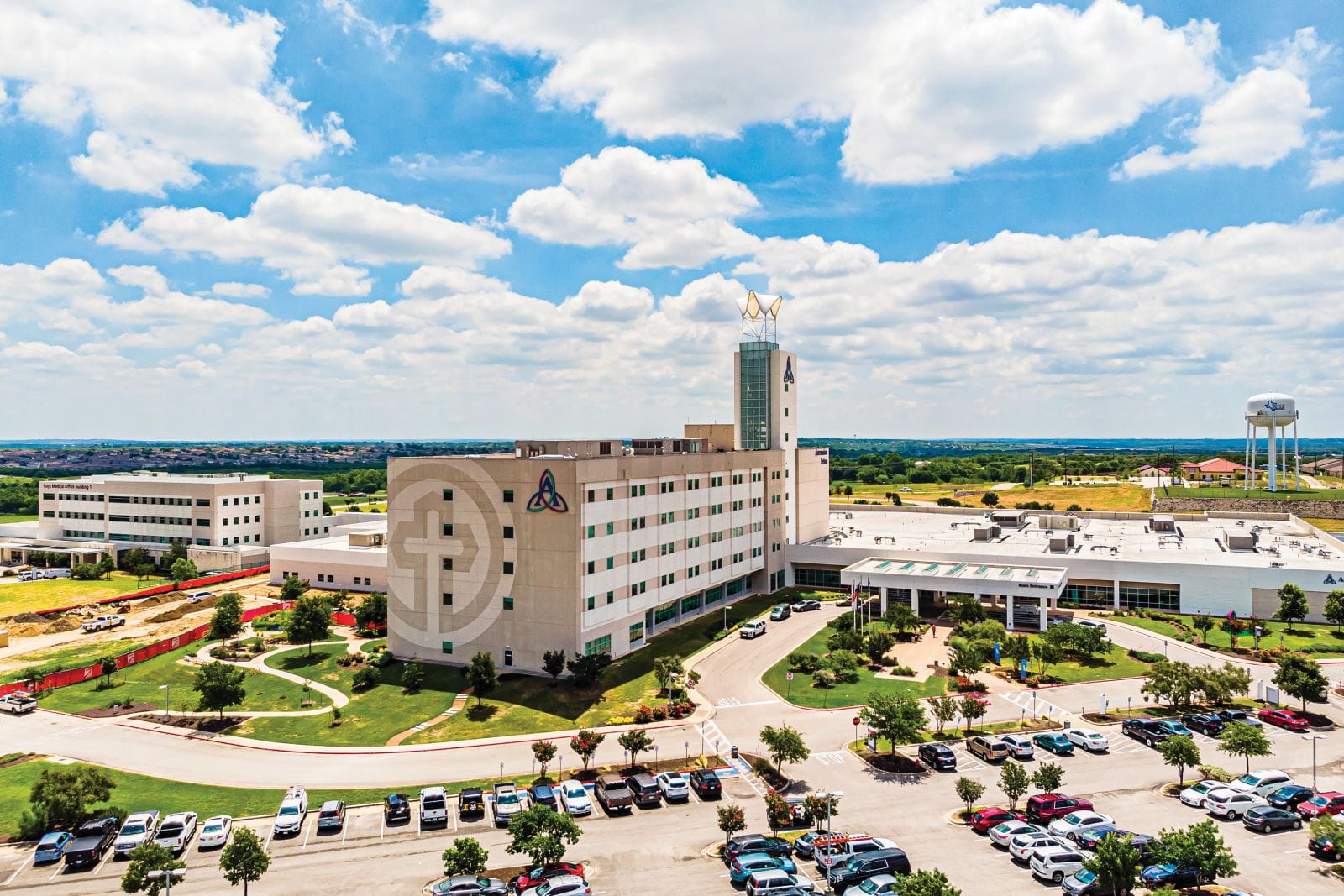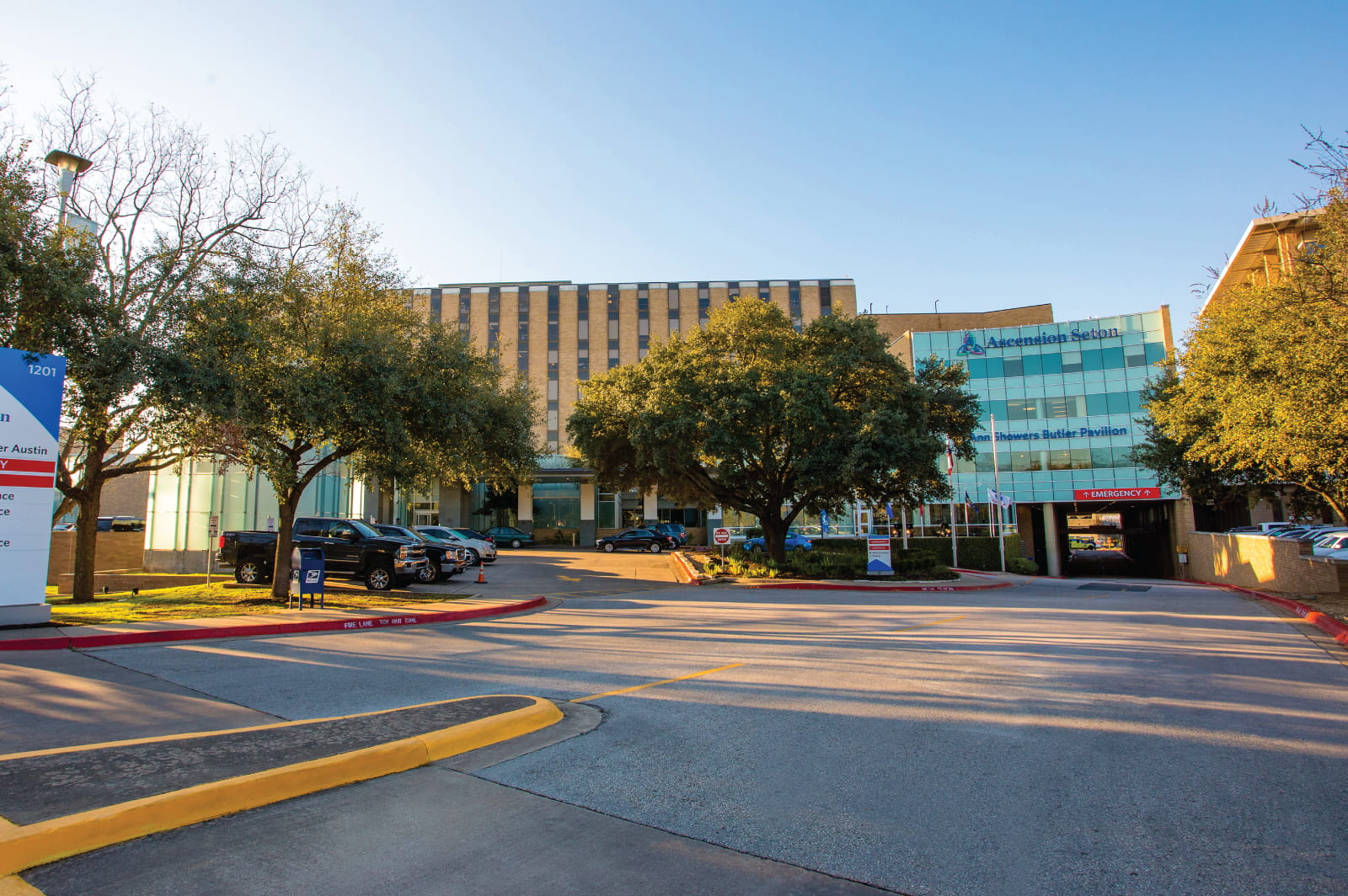
Get a heart scan in Austin
If you’re not ready to schedule a heart scan, a quick heart health assessment can help you understand your risk and decide what’s right for you.
-
When should you have a heart scan?
Your age, gender, lifestyle and medical history play a role in your heart health. If you have symptoms of heart disease or are unsure about your risk, talk to your doctor about a heart scan. A CT heart scan can help you and your doctor better understand your risk for heart attack. The imaging test delivers a coronary calcium score based on the amount of calcium-containing plaque that has built up in your heart arteries. You may benefit from a heart scan if you:
- Are a man over age 40 or a woman over age 50
- Are a smoker or have a history of smoking
- Have a family history of heart attack at an early age
- Have diabetes
- Have high blood pressure
- Have high cholesterol
Talk with your doctor about having a coronary calcium scoring heart scan. You should not have a heart scan if you are pregnant, or have already had a heart attack, coronary bypass surgery or a coronary stent.
-
What happens during a heart scan?
A calcium scoring heart scan is a specialized X-ray called a CT scan. This imaging test takes a cross-sectional picture of the coronary arteries that supply blood to your heart muscle. The test can show your doctor if there are calcified plaque deposits (composed of fats, cholesterol, calcium and other substances) in the coronary arteries.
During your heart scan, you'll be asked to lie still and hold your breath for a few seconds. Then, your radiology technician will operate the scanner from a room next door. You can still see and talk to your technician throughout the procedure. After your heart scan, a report is sent to your doctor, who will review the results. Your doctor will discuss your risk for heart disease and work with you to create a treatment plan that is right for you. At Ascension sites of care, your heart care team collaborates, working together to monitor your symptoms and overall health.
-
How long does a heart scan take?
A heart scan imaging test takes approximately 10 to 15 minutes once the test begins. During your appointment, you’ll also have a conversation with your doctor about your health history, risk factors for heart disease and treatment options that are right for you.
-
How serious is calcium buildup in the heart?
Calcified plaque buildup, that includes calcium, cholesterol and fat, can cause your arteries to narrow. This condition is serious, as it can reduce or completely block blood flow to your heart. Calcium deposits are a marker for coronary artery disease, the most common type of heart disease in the United States.
Heart care can’t wait. If being active is more difficult than it used to be and you are feeling fatigue more often, ask your doctor about heart screening options. Schedule a calcium scoring heart scan at an Ascension site of care near you.
-
What is a good calcium score on a heart scan?
Your heart scan provides information about the level of calcification in your coronary arteries and helps determine your overall heart health. A calcium score ranges from 0 to over 400. A higher score means a higher risk of having heart disease:
- 0 - no calcification
- 1-10 - minimal calcification
- 11-100 - mild calcification
- 101-400 - moderate calcification (high risk for heart disease)
- 400 and above - extensive calcification (high to severe risk of heart disease)
Knowing you’re at risk for heart disease could save your life. And a simple heart screening can help you and your doctor better understand your heart health. Schedule a heart screening today.
-
Can a blood test diagnose heart problems?
A cholesterol test, also called a lipid profile, is a test that checks for unhealthy levels of cholesterol in your blood. Cholesterol is a wax-like substance that can build up on the walls of your coronary arteries, restricting or blocking blood flow. The test evaluates:
- Low-density lipoprotein (LDL) - LDL is also called “bad cholesterol” because it can cause plaque buildup within your arteries.
- High-density lipoprotein (HDL) - HDL is also called “good cholesterol” because higher levels can help lower your risk for heart disease and stroke.
- Triglycerides - Triglycerides are fats in your blood that your body uses for energy. Combined with LDL or HDL cholesterol, triglycerides may increase your risk for heart disease and stroke.
- Total cholesterol - This is the total amount of cholesterol found in your blood, including HDL, LDL, and triglycerides.
Other cardiac blood screenings are used to test cardiac enzymes, such as troponin (a type of protein that’s released when the heart muscle is damaged). This information can help your doctor diagnose a heart attack, infection and other health conditions that can affect your heart.
-
How do I schedule a heart scan near me?
Knowing if you’re at risk for heart disease could save your life. And a simple heart scan can help you and your doctor better understand your heart health. Ask your doctor about your heart scan options.
 A simple heart scan can help you and your doctor better understand your heart health so that you can get the right treatment sooner. A heart scan creates high-resolution images to identify and measure calcium-containing plaque in your arteries. Too much plaque can narrow your arteries and restrict blood flow. If daily tasks or a short walk are more difficult than they used to be, ask about your heart screening options.
A simple heart scan can help you and your doctor better understand your heart health so that you can get the right treatment sooner. A heart scan creates high-resolution images to identify and measure calcium-containing plaque in your arteries. Too much plaque can narrow your arteries and restrict blood flow. If daily tasks or a short walk are more difficult than they used to be, ask about your heart screening options.


